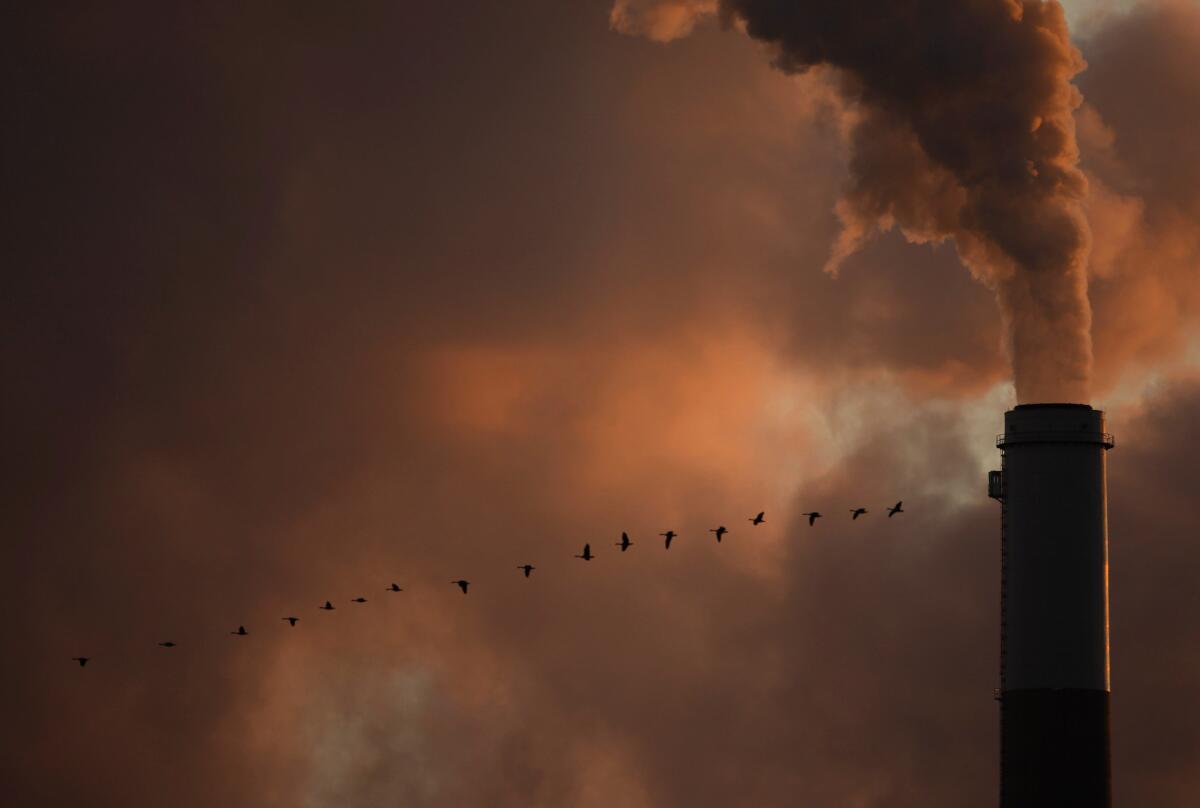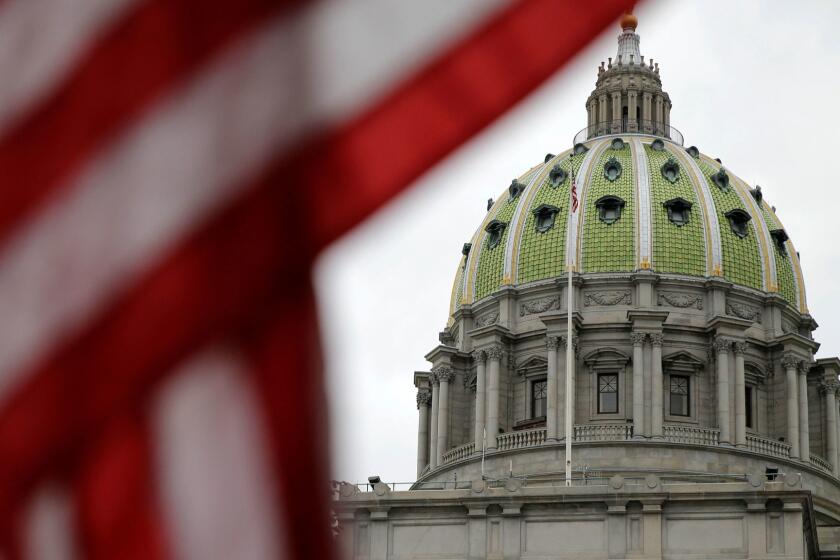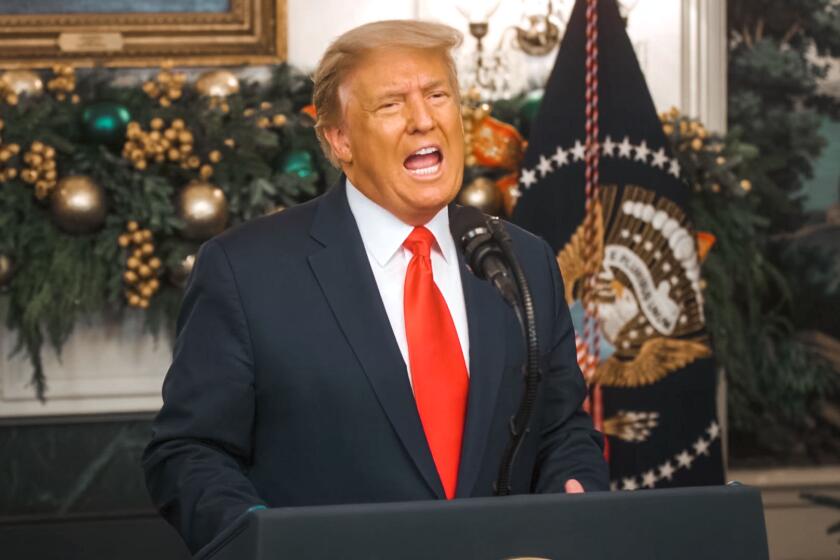As his days in office dwindle, Trump adopts another rule marginalizing science

- Share via
The Trump administration is handing out another parting gift to polluters as it nears the exit door — and it is going to exit — by finalizing a long-gestating rule that would limit the scope of scientific studies the Environmental Protection Agency can use in forming regulations.
Yeah, I know, sounds tedious, but the rule could have a profound effect by, among other things, barring the EPA from using anonymized health impact studies to decide whether a compound or emission ought to be regulated. Such studies have been relied upon for years in measuring the potential effects of pollutants. Think mercury and particulate matter from smokestacks. Think water quality. Think any intersection of regulatory decisions and studies in which people participate under the promise of privacy.
Republicans in Pennsylvania seem eager to thwart the will of the state’s voters in the 2020 presidential election.
The Times’ editorial board condemned the proposed rule more than a year ago as the proposed regulation was working its way through the review process.
The board noted that the name — finalized at “Strengthening Transparency in Pivotal Science Underlying Significant Regulatory Actions and Influential Scientific Information” — sounded innocuous enough, as did the stated intent to require scientists reveal raw data from their studies, including personal medical records of participants, for the work to be used in crafting federal regulations.
You know, transparency and all that.
But that was a pretext. Promises of privacy are standard for these studies. In fact, it would be hard to do broad analyses of health impacts if those conducting the studies couldn’t guarantee confidentiality to participants.
Look at your own approach — would you offer up intimate health details for a study if you knew they would be made public with your name attached?
And that’s the intent behind the new rule — to reduce the influence of scientifically valid studies on regulatory decisions, which would be a boon to those who don’t mind profiting from poisoning the rest of us.
“It’s a dangerous game,” the board wrote in November 2019. “Regulations and policies affecting public health of necessity should rely on clear-eyed analysis of the best science and data available; this rule moves the country in the wrong direction.”
It’s notable that the move was part of efforts by the tobacco industry in the 1990s to shield itself from meddlesome regulations based on health impacts from smoking.
It was a bad idea then, and it’s a bad idea now.
It’s not a fight over principle. Trump’s complaints about the bill don’t rise to that level.
Fortunately, the new rule may not last long. Its opponents in Congress could fast-track a vote to repeal it through the Congressional Review Act, provided they can find 50 votes in the Senate (see “Georgia runoff election”). The incoming Biden administration could suspend the rule or roll it back, although that may require another rulemaking process.
And, like so many other Trump regulatory maneuvers, it faces a probable legal challenge from environmental groups. Plus, the rule includes a mechanism for granting exemptions for including studies in regulatory reviews on a case-by-case basis.
But still, it’s a bad rule that fits in with other Trump administration decisions that ignore the public health impacts of policies, or the rights of stakeholders, so long as oil, gas and other extractive industries get favored treatment.
And as a colleague noted, the rule is just another effort by Trump to strew nails on the freeway as Biden makes his entry.
More to Read
A cure for the common opinion
Get thought-provoking perspectives with our weekly newsletter.
You may occasionally receive promotional content from the Los Angeles Times.












